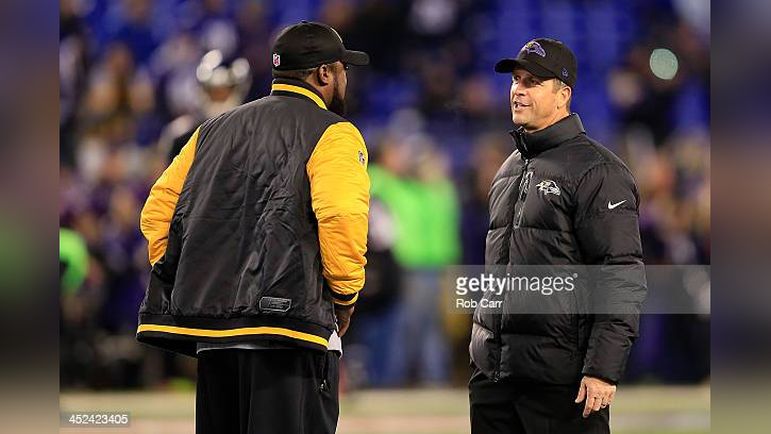NFL
Steelers And Ravens Battle For NFL’s Longest Streak – Most Games Avoiding Shutout

The Pittsburgh Steelers and Baltimore Ravens have the NFL’s best rivalry. The hard hits, the close games, the back-and-forth nature, even if the Steelers have come out on top over the last three seasons. They’re never easy wins.
But these two rivals are fighting for something else. An active streak as impressive, or at least as long, as any. Most games without being shut out.
Of teams with current streaks, the Ravens are number one. The Steelers number two. Baltimore has not been shut out for their last 353 regular season games. The last time they put up a goose egg came in Week 2 of 2002, days after the one-year anniversary of 9/11. Tampa Bay beat them 25-0, highlighted by a punt return touchdown and a 97-yard pick-six by LB Derrick Brooks. He was inducted into the Hall of Fame a decade ago. Chris Redman served as the Ravens’ starting quarterback that day, throwing for only 141 yards while being sacked three times. Baltimore’s rushing attack of Jamal Lewis and Chester Taylor was bottled up.
Pittsburgh’s streak? No shutouts in their last 280 games, none over the Mike Tomlin era. Their last one came, funny enough, against the Ravens in 2006, a 27-0 loss, the day Ben Roethlisberger took the hardest his of his career. The Steelers were shut out earlier that year, 9-0 to the Jacksonville Jaguars in Week 2.
Those are the league’s two longest active streaks. Here’s the top five.
NFL Longest Active Shutout Streaks
1. Baltimore Ravens: 353 games (2002-Present)
2. Pittsburgh Steelers: 280 games (2006-Present)
3. Minnesota Vikings: 266 games (2007-Present)
4. San Francisco 49ers: 217 games (2010-Present)
5. Kansas City Chiefs: 181 games (2012-Present)
A couple of notes off that.
– Neither team’s head coach, John Harbaugh or Mike Tomlin, has been shut out.
– These aren’t the longest shutout streaks ever. The 49ers still hold the all-time record since the merger, 420 consecutive games from 1977 to 2004. The Denver Broncos (394) and Indianapolis Colts (375) also have longer now-ended streaks than the Ravens’ active one.
– On a franchise level, the Steelers’ current streak is easily their longest ever. The previous mark was a 132-game stretch from 1964 to 1974, a surprising time considering how mediocre they were in the 60s.
– Obviously, there really isn’t a “competition” between the Steelers and Ravens. The Steelers can’t “catch” the Ravens mark unless Baltimore gets shut out. But they are the longest streaks.
When will either streak break? Who knows. Predicting a team being shut out is impossible. You can predict when an offense might struggle, given a team’s current makeup or the tough defense they’re facing. Usually, shutouts are a combination of both. In this modern era of scoring, shutouts are rare. Of the 544 possibilities in 2023, there were only eight instances of a team being shut out. That’s just 1.5 percent of the time. As teams become more crisp, kickers able to hit from longer range, and the rulebook favoring offenses, shutouts have decreased over time.
NFL Shutout Percentage (Over Time)
2023: 1.5 percent (eight of 544 instances)
2022: 0.7 percent (four of 544 instances)
2020: 0.6 percent (three of 512 instances)
2010: 1.0 percent (five of 512 instances)
2000: 2.6 percent (13 of 496 instances)
1990: 1.8 percent (eight of 448 instances)
1980: 2.2 percent (10 of 448 instances)
1970: 4.1 percent (15 of 364 instances)
1960: 3.2 percent (five of 156 instances)
Going primarily every decade shows single-season variance, and if you charted each decade out, you’d see a clearer trend line. Still, it’s clear that over the last 15 years, the shutout rate remains around one percent, about half of what it was from the 1980s-2000s and about one-third of what it was around the merger/Super Bowl era.
Most of this is just fun exercise. It’s nothing we’ll think about throughout the season unless the Steelers or Ravens put up a goose egg. Then you can bet we’ll revisit. Though they probably will be, we’ll see if these streaks remain intact when the Steelers and Ravens first see each other in Week 11.


)






